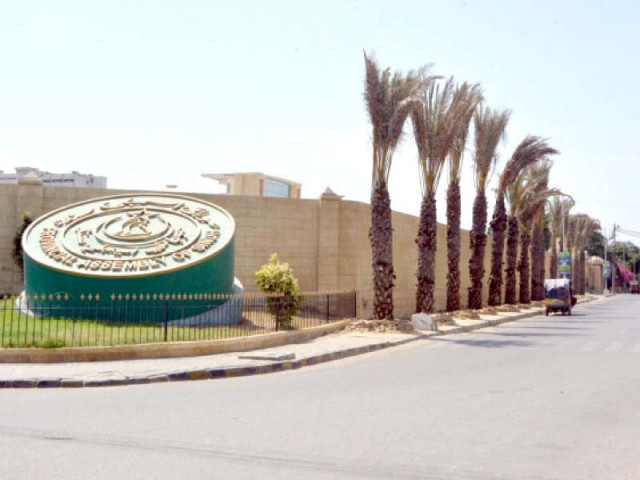Promises made by govt still far from reality
Interestingly, the people the law is meant for are largely unaware of it

Sindh became the first province in Pakistan to pass the senior citizens welfare law in April 2016. The landmark law was aimed at providing relief to the province’s elderly residents aged 60-year and above. However, despite the passing of almost eight years and much like most welfare schemes granted to Sindh, this law is yet to make it out of paper and apply to the real world, where the demographic it hopes to uplift is not even aware of the ruling.
Officially called the Sindh Senior Citizens Welfare Act 2016, on paper, the law offers various inspiring features such that guarantee physical, mental, emotional and socio-economic well-being of the province’s elderly, but it seems that the government has forsaken its implementation.
According to the law, there was to be a senior citizens’ council for the welfare of Sindh’s elderly. The council was to be headed by social welfare minister as its chairperson, in addition to two members of the provincial assembly to be nominated by the speaker, secretaries of finance, health, local government and Zakat departments, as well as representatives from the transport community, NGOs, business community and food and agriculture department as its members.
“This council will formulate policies for the welfare and improvement of the well-being of senior citizens,” the law said, adding that under the law identification cards known as ‘Azadi Cards’ will be issued to the senior citizens to avail benefits and privileges in essential services.
To the elderly, it promised free geriatric, medical and health services with free medicines as prescribed by the respective medical officer from Government dispensaries, hospitals, medical centres, in addition to 25% concession at all private hospitals, medical centres and clinics. “The government will establish day care centers for the elderly. They will be exempted from tax by any department,” the law said.
In terms of increasing the elderly’s mobility options, the law had also promised a 50 per cent concession in fares of both public and private transport within the city for senior commuters, as well as discounts on railway tickets and air fares per the recommendation of the council. Moreover, senior citizens were also to be given a 25 per cent discount [of net profit] on the purchase of goods, drugs, medicines and essential commodities. The bill, that seemed too utopian to exist, had also a provision for zakat funds and Baitul Maal for maintenance, medical and other financial problems that may affect Sindh’s senior citizens.
The Express Tribune conducted a random survey, approaching two dozen elderly people to probe about the benefits of the law, but it seemed that very few were actually aware of it. “I am diabetic patient with kidney problems and frequently travel in the buses from Nazimabad to various areas of the city. Not only do I have to bear the full transportation cost, but pay an exorbitant amount to purchase my routine medicine,” said Alamghir Khan, 68, a retired school teacher. “Most of my pension amount goes to medicine, the price of which has jumped to over 300 per cent in the last four years,” he added, maintaining that the implementation of the law is essential to his survival in the current economy. Similarly, Tahira Begum, 62, who lives with her disabled husband in Manzoor Colony said that their sustenance relies on her working as a domestic help which is becoming beyond her physical capacity at this age. “We have requested our union council people many times for zakat and other relief, but no one has helped so far,” she lamented.
The landmark elderly welfare law did not only concern access to essential products and services, but had also hoped to make entertainment and recreation more accessible to Sindh’s elderly, a domain that is seldom mulled in terms of law-making. There was hence supposed to be a 25 per cent discount for senior citizens at recreation centres, cinemas, theatres, hotels and restaurants. Meanwhile, the government was to provide assistance to retired senior citizens in getting their pension benefits and other dues from relevant departments and organisations. “Government will provide free service for funerals and burial by the local council on the death of a senior citizens,” said the bill’s empty words.
Interestingly, a clause in the bill also mentions how thorough its implementation was going to be by the government, although anyone reading it today is advised to take it with a grain of salt. “Any person who refuses to honour a senior citizen card holders or violates any provision of this act will be punished with rigorous imprisonment of three years, coupled with a fine of Rs30,000,” it read. “Whoever leaves senior citizens with the intention of abandoning them shall be punished with three-month imprisonment or a fine,” the clause stated.
When approached regarding the empty-worded bill, Social Welfare Minister Sajjid Jokhio appeared reluctant to mention anything about its long-anticipated implantation. “I am busy now, I can’t give you the details,” he said, adding that the government is working on it. While his secretary was of the view that they have partially implemented the law and it is only some links that are missing. “For instance we have written to the banks to set up special counters and entertain the senior citizens. We have given provision for elderly and disabled persons in the new bus services launched in Karachi,” he said, adding that the government has been working on generating funds to provide further facilities to senior citizens.
Published in The Express Tribune, July 23rd, 2022.



















COMMENTS
Comments are moderated and generally will be posted if they are on-topic and not abusive.
For more information, please see our Comments FAQ